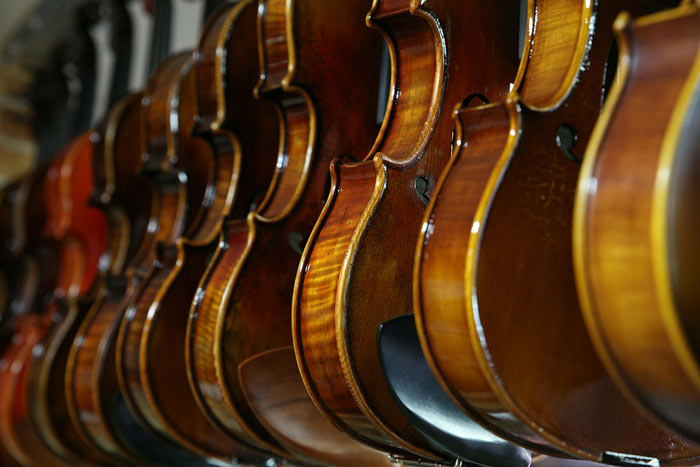The feeling that you have mastered a musical instrument and are perfectly able to play the pieces you like is highly pleasurable and gratifying. Supposing you were given a free choice of instruments to play with an instant ability to produce music, what would you go for? Surely a lot of people would start thinking about the violin. Its revered age, appealing voice, the air of romance and mystery attached to the instrument all join to bring it to the fore. But, magic aside, it’s not easy to learn to wield the violin with grace and assurance. Would you step back, then?

Why Is Playing Musical Instruments Good for You?
Learning to play music is not only pure fun: scientific researches inform us that it is extremely beneficial to the health and mental state. With children, music ensures sensory development, sharpens their memory, enlarges attention span, and generally exerts a positive influence on their bodily and mental condition. It is even said to enhance social abilities. But violin playing isn’t only good for children: you can begin at any age with the same benefits guaranteed.
And even more of those, since adults are harder pressed. You can expect to gain:
- alleviated stress
- milder forms of anxiety, depressive moods, health issues pertaining to chronic stress
- apart from getting relief from your worries, you get to know many interesting people who are impressed by your aspiration
- producing music enhances blood flow to the head
- brain injuries heal better when treated by music
- musical training gives you the grasp of multiple processing
- while you are learning you improve your memory and reading ability
- playing the violin requires a special posture that will enable you to stand and move more gracefully.
How to Choose the Right Violin?
 Choosing the violin for yourself can be difficult, especially if you’re a beginner. Below are some tips on how to choose the best violin within your budget and playing skills.
Choosing the violin for yourself can be difficult, especially if you’re a beginner. Below are some tips on how to choose the best violin within your budget and playing skills.
If you are serious about it, renting a violin will certainly cost you more than purchasing a new one. Then, you might be having problems with a used instrument. Everything goes for buying a violin.
Mind that adults should choose a full-size violin – there’s no question of growing out of it.
Quality instruments, expensive and well manufactured, if cared for, don’t deteriorate. On the contrary, they often grow in value, since their sound usually improves with use.
Be honest with yourself: are you ready to take up playing for a long time – or do you want just to dabble in it for your own pleasure? Decide on the sum you can stump up for your instrument accordingly, and don’t splurge if you are sure you have no claim to professionalism and performing.
In the Shop
- You have decided to buy from a luthier? Then you may have to make separate purchases of the instrument, the bow, and the case.
- Before committing yourself to the purchase, you are supposed to give your violin and bow a try – play and test them out otherwise. A decent shop ought to have a special room where you can do it without interruptions and getting in somebody’s way.
- If you mean to get down to it with fervor and tenacity, invest in an older violin. Yet some modern manufacturers produce excellent instruments with fine sound that would come cheaper and may not be much worse.
- Now for the bow: it must be quite weighty, well-balanced between the tip and the frog, and flexible. The right bow is very important, because a bow which is heavy for you will permanently strain your hand, and an injury might ensue. A bow which is light won’t let you create a resounding sound. So the bow requires a very attentive try-out, probably over a stretch of time so you can take a good gage of it.
- A badly-balanced bow will make it difficult to perform complicated strokes, and you will lose in speed and accuracy if it proves on the stiff side or too easily flexible.
- Also, you have to know how your violin sounds from a distance. Ask somebody else to play it and listen from the opposite corner of the room, or ask a knowledgeable listener to listen to you play. You want it to sound impressive, so experiment with different rooms for a better assessment.
- On no account purchase an instrument that you don’t delight in. If in doubt, better go and try another one.
Important Tips for Those Who Learn to Play Violin
You know that in order to play well you need to practice a lot and be persistent, so brace yourself and remind yourself that you are sure to get there in the end. Still, there will be discouraging moments, especially at early stages, and these hints could come in handy to pull you through bad patches.
- Get a chromatic tuner and have your violin tuned properly before commencing your practice.
- Prior to playing learn to tune the violin.
- Finally, get to know how to maintain and store the instrument. You don’t want it to deteriorate through not being aware of storing or cleaning rules.








